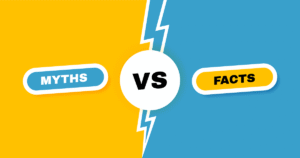
Eating clean doesn’t have to mean spending a fortune on fancy organic products or imported superfoods. With a little planning and some smart shopping, you can fuel your body with nutritious meals that are affordable and delicious.
In this guide, you’ll learn how to start eating clean even if you’re on a budget.
1. What Does “Eating Clean” Really Mean?
Eating clean simply means focusing on whole, minimally processed foods—fruits, vegetables, lean proteins, whole grains, nuts, and seeds—while limiting added sugars, refined carbs, and artificial ingredients.
It’s not about perfection; it’s about making better choices most of the time.
2. Plan Your Meals Ahead of Time
Impulse food buys are often the most expensive.
Action Step:
- Plan 3–4 main meals for the week.
- Base them on seasonal produce and affordable staples like rice, oats, beans, or eggs.
- Write a shopping list and stick to it.
3. Buy in Bulk (But Be Smart About It)
Buying grains, beans, nuts, and seeds in bulk is usually cheaper.
Tip: Only bulk-buy foods you eat regularly, otherwise they may spoil and waste money.
4. Shop Seasonal & Local
Seasonal produce is cheaper, fresher, and tastier.
- Visit local markets towards the end of the day for discounts.
- Learn which fruits and vegetables are in season in your region.
5. Limit Pre-Packaged Healthy Foods
“Health” snacks like granola bars or protein shakes can be pricey and often contain hidden sugars.
Alternative: Make your own snacks—try overnight oats, boiled eggs, or homemade hummus.
6. Use Affordable Protein Sources
You don’t need expensive steak to get protein.
- Eggs, canned tuna, beans, lentils, and tofu are budget-friendly options.
- Frozen fish and chicken often cost less than fresh but still offer the same nutrition.
7. Cook in Batches & Freeze
Cooking large portions of soup, chili, or stir-fry and freezing them saves money and time.
Bonus: Reduces the temptation to order takeout on busy days.
8. Grow Your Own Herbs & Veggies
Even if you don’t have a garden, you can grow herbs like basil, mint, and parsley in pots on your windowsill. Fresh herbs add flavor without extra cost.
9. Reduce Food Waste
The average household throws away 20–30% of the food they buy.
Ways to prevent this:
- Store food properly.
- Repurpose leftovers into new dishes.
- Keep “eat soon” foods at the front of your fridge.
10. Treat Yourself (Mindfully)
Eating clean doesn’t mean cutting out treats forever.
Plan for the occasional dessert or favorite snack so you don’t feel deprived—just enjoy them in moderation.
Final Thoughts
Eating clean on a budget is all about smart shopping, cooking from scratch, and using what you have. Start with small changes, build new habits, and soon you’ll find that eating well doesn’t have to cost a fortune.
SEO Keywords to Include:
eating clean on a budget, healthy eating tips, affordable healthy meals, cheap clean eating recipes, how to eat healthy without spending much.
If you want, I can also make the 3rd article, “7 Quick & Healthy Breakfast Recipes You Can Make in 10 Minutes” so your blog starts to form a complete healthy-lifestyle series that attracts Google Ads easily.



